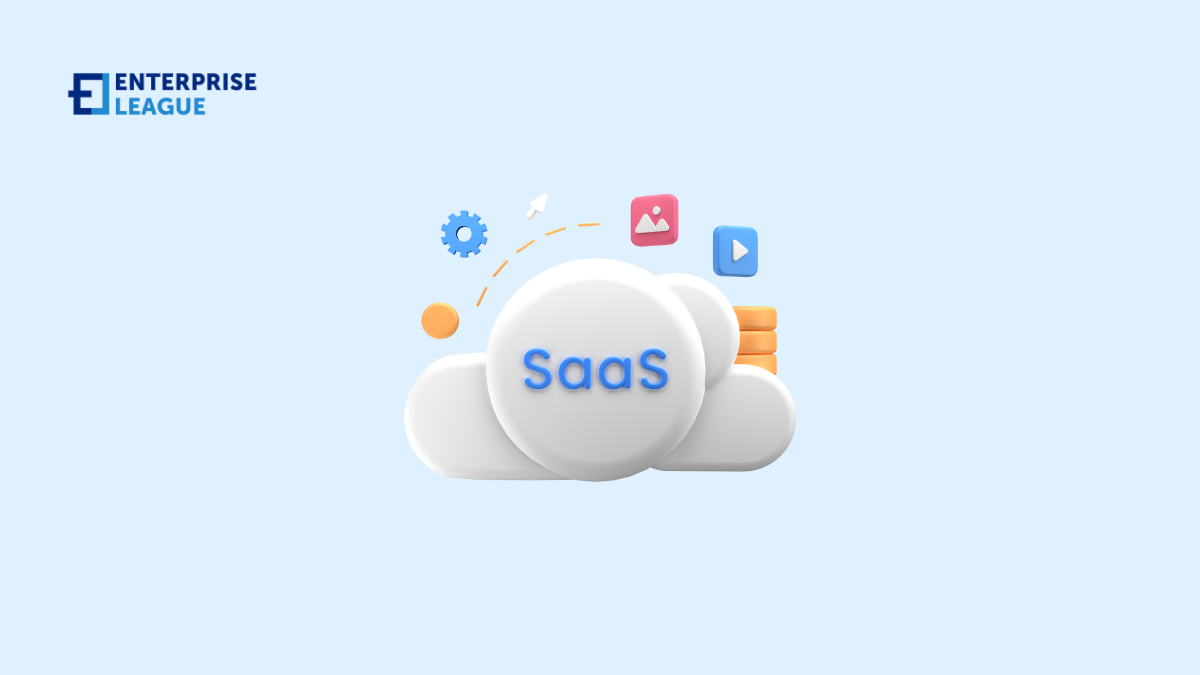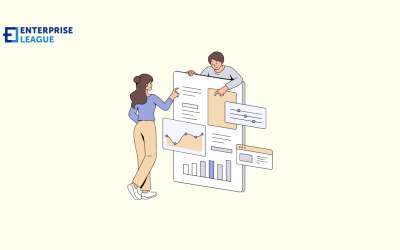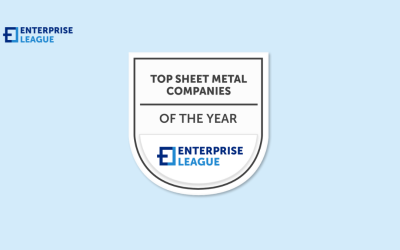SaaS solutions: 9 most used software-based solutions for business compliance and automation
April 12, 2023

This article will explore the most popular SaaS solutions employed by businesses today, highlighting their benefits and how they enable organizations to remain compliant and automate tasks. We will also touch upon the growing importance product development services and of employee recognition software in the modern workplace.
Stay ahead of the game with these top SaaS Solutions
SaaS solutions have become essential tools for businesses of all sizes due to the increasing need for automation and compliance in today’s business environment. Here are the top nine SaaS solutions that can help businesses achieve their compliance and automation goals.
Customer Relationship Management (CRM) systems
A leading SaaS solution in the business world, CRM systems, including those enhanced by RPA in banking, help manage and analyze customer interactions throughout the customer lifecycle. CRM systems improve customer retention, satisfaction, and overall business success by automating sales, marketing, and customer service processes. Integrating RPA in banking CRM systems brings additional benefits by automating repetitive tasks, such as data entry, lead qualification, and customer onboarding.
This saves time and reduces human errors, and allows banking professionals to focus on building stronger relationships with customers, providing personalized services, and identifying opportunities for upselling and cross-selling. With RPA integrated into CRM systems, banks can streamline their operations, enhance customer experiences, and gain valuable insights into customer behaviors and preferences, ultimately driving business growth and profitability.
Some popular CRM platforms include Salesforce, HubSpot, and Microsoft Dynamics 365, which offer customizable features to cater to businesses of all sizes and industries. These systems ensure that companies remain compliant by providing secure data storage, managing GDPR, and handling other data privacy concerns.
Enterprise Resource Planning (ERP) software
ERP software integrates essential business functions into a single, unified platform, making it easier for organizations to manage resources, automate processes, and improve operational efficiency. These solutions typically include modules for finance and accounting, supply chain management, human resources, and more.
Popular ERP systems such as SAP, Oracle, and Microsoft Dynamics AX help businesses remain compliant by managing financial reporting, tax calculations, and regulatory requirements, while also streamlining operations and reducing errors.
Human Capital Management (HCM) systems
HCM systems are designed to streamline and automate HR processes, including recruitment, talent management, benefits administration, and payroll. Businesses can manage their workforce efficiently, improve employee engagement, and ensure compliance with labor laws and regulations by utilizing these solutions that provide necessary tools. Well-known HCM platforms such as Workday, ADP, and BambooHR offer user-friendly interfaces and customizable features to cater to specific organizational needs.
Project management and collaboration tools
As remote and hybrid work models become increasingly popular, project management and collaboration tools have become essential for businesses to maintain productivity and ensure seamless communication among teams. SaaS solutions like Asana, Trello, and Slack provide businesses with platforms to assign tasks, track project progress, and facilitate real-time communication.
These tools not only improve efficiency but also help companies maintain compliance with data protection and privacy regulations, as they provide secure channels for communication and file sharing.
Employee recognition software
By implementing employee recognition software, such as Terryberry, Bonusly, Kudos, and Achievers, businesses can improve employee engagement, morale, and retention. Moreover, these solutions help organizations maintain compliance by tracking rewards and providing the necessary data to report taxable income and manage employee benefits.
Learning Management Systems (LMS)
An LMS is a platform that facilitates the delivery, tracking, and management of training programs for employees. Businesses use LMS software such as Moodle, TalentLMS, and Docebo to provide comprehensive and accessible training resources, ensuring that employees stay up-to-date with industry knowledge, skills, and compliance requirements. By automating the training process, LMS solutions save time and resources, allowing companies to focus on other critical business areas.
Compliance management solutions
Businesses must adhere to various industry-specific regulations and standards, making compliance management a critical aspect of their operations. Compliance management solutions, such as LogicGate, Onspring, and ZenGRC, help organizations identify risks, manage policies, and maintain compliance with regulatory requirements.
These platforms provide businesses with a centralized hub to monitor compliance-related activities, automate reporting, and streamline internal audits. By leveraging compliance management solutions, organizations can reduce the risk of non-compliance penalties, protect their reputation, and maintain trust with customers and stakeholders.
Document Management Systems (DMS)
A software solution known as a DMS can assist businesses in creating, storing, managing, and tracking electronic documents and records. These systems help organizations streamline workflows, improve collaboration, and maintain compliance with document retention policies and regulations.
Popular DMS platforms like DocuWare, M-Files, and eFileCabinet provide features like version control, access permissions, and secure document storage, ensuring that sensitive information is protected and managed according to industry standards.
Electronic signature solutions
Electronic signature solutions like DocuSign, Adobe Sign, and HelloSign have become integral to modern business operations. These platforms facilitate the secure and legally binding signing of documents, contracts, and agreements, streamlining processes and reducing the need for physical paperwork. By automating the signing process, electronic signature solutions save time, improve efficiency, and ensure compliance with electronic signature laws and regulations.
Conclusion
Implementing SaaS solutions can help organizations streamline operations and focus on innovation, growth, and achieving long-term success. By embracing SaaS technology, companies can stay competitive, adapt to changes, and thrive in the market.
More must-read stories from Enterprise League:
- Profitable and funny business idea that you can start today.
- Smart ways to enhance the efficiency of your business.
- Find out how emotional intelligence in business can help you overcome challenges.
- How to ask for a deposit in a contract without being awkward or losing a client.
- Importance of online privacy laws in the digital era and how they protect us.
Related Articles
Scaling your data annotation efforts: A guide to efficient labeling
This guide highlights the critical role of a thought-out data labeling strategy, digs into workflow optimization and presents actionable steps for scaling up.
Top 26 sheet metal companies paving the way forward (2024)
The top 26 sheet metal companies with the smartest techniques of sheet metal fabrication. Find out what technologies they use and how are they shaping the path forward.
8 essential skills you need to run a successful business
We will go through the eight critical skills that entrepreneurs and business leaders need to master to establish flourishing and enduring businesses.
Scaling your data annotation efforts: A guide to efficient labeling
This guide highlights the critical role of a thought-out data labeling strategy, digs into workflow optimization and presents actionable steps for scaling up.
Top 26 sheet metal companies paving the way forward (2024)
The top 26 sheet metal companies with the smartest techniques of sheet metal fabrication. Find out what technologies they use and how are they shaping the path forward.





